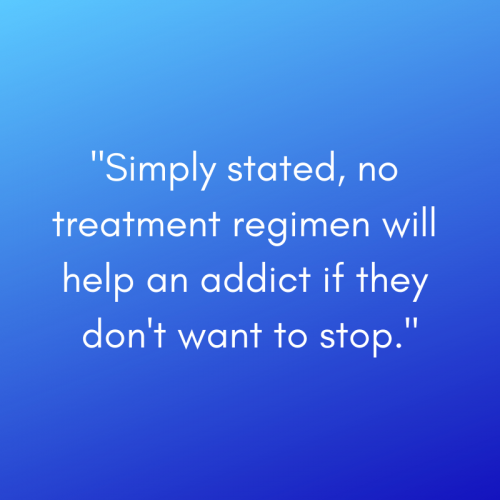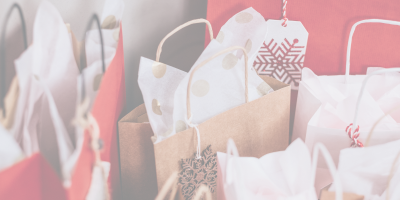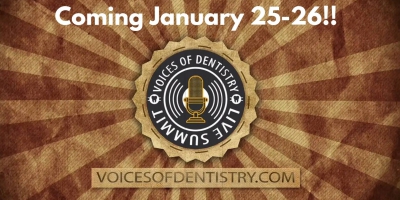How Do You Measure Desire?
 After decades of continuous increase, life expectancy in the United States has dropped. Some sobering statistics were just released by the CDC that show white men and women as well as black men are seeing the biggest drop in life expectancy of any groups. Among the culprits of this decrease are opiate overdose and suicide.
After decades of continuous increase, life expectancy in the United States has dropped. Some sobering statistics were just released by the CDC that show white men and women as well as black men are seeing the biggest drop in life expectancy of any groups. Among the culprits of this decrease are opiate overdose and suicide.
Opiate overdose deaths have increased due to availability of synthetic opioids like fentanyl and carfentanil as well as easy access to illicit opiates like heroin.
According to the headlines, the United States has an “opioid crisis.” Similar headlines explain how much federal money (upwards of 1 billion dollars) have been set aside to help with the treatment of opiate dependence. New treatment centers are coming online. Perhaps more importantly, MAT (medication-assisted treatment) programs are growing in number and prominence. As a country we’ve recognized that opiates are a growing problem and we’ve decided to spend some money on it.
So we’ll see the problem get better, right?
Well…maybe. Drug and alcohol addiction treatment has always been a bit of a hit or miss. I have a theory about how successful drug and alcohol treatment can be. It’s not a popular theory nor is it very scientific. It’s based on personal experience and I’m pretty sure it’s right.
I’m an opiate addict. I got in trouble with opiate pain medications soon after I graduated from dental school in the late 90’s. Health care professionals have an unhealthy amount of access to these medications. Dentists, doctors, nurses and other highly trained professionals are supposed to have a professional distance from the drugs we use to help patients with moderate to severe pain. We’re supposed to know better.
I knew better.
Except I didn’t.
In dental school I learned how to use alcohol as a coping mechanism. Although I didn’t appear to “drink like an alcoholic,” I learned to use alcohol to change the way I was feeling. And in dental school, I felt bad a lot of the time. I wanted to change the fear, anxiety and dread that I felt a lot of the time.
Fast forward to me as a young dentist and practice owner. The same coping mechanism that got me through dental school didn’t look very good. Drinking to excess and drinking alone weren’t socially acceptable outside of school. But those Vicoprofen samples that ended up in my office…they told a different story. I could change the way that I felt with a round, white, innocent-looking tablet. This medication had the power to take away my problems. Or at least it could take away the feelings that came along with my problems. For a little while.
In fact, the drugs that I became dependent on created a whole new set of problems. Some of these new problems were physical. It wasn’t long before I needed an increasing amount of the stuff to get the same feeling of comfort. In fact, there came a time when I couldn’t really take enough to feel good anymore. I basically only could take enough that I wasn’t physically sick. And it was really hard to keep the stuff around because I needed so much. I had emotional problems, too. I found myself withdrawing from relationships with my family and friends because they got in the way of my using. I also had financial problem. It turns out that drug addled new business owners don’t do very well with spending or paying the bills.
I started out thinking that the opiate medications I was taking would solve problems, but they actually created exponentially more of them. They never really solved anything. Instead they masked the troubles that I didn’t want to face.
All throughout my 4 year active addiction there was this voice that I could very occasionally hear over the madness. It was a voice screaming at me that this wasn’t right and this wasn’t OK. Normal people don’t do this. Normal people don’t live life one dose of opiates at a time. Normal people don’t spend their life getting and using drugs…and finding ways and means to get more.
 This voice was persistent, but could never quite overcome my voracious appetite for more. There were moments where I would try to parcel out the drugs in an attempt to wean myself off of them. If I could only cut back. If I could just cut back and only take enough so I wasn’t sick. If I could do that, maybe I could get to a point where I could just use a little bit. I tried to exhibit some control. But addicts, by definition, fail at this.
This voice was persistent, but could never quite overcome my voracious appetite for more. There were moments where I would try to parcel out the drugs in an attempt to wean myself off of them. If I could only cut back. If I could just cut back and only take enough so I wasn’t sick. If I could do that, maybe I could get to a point where I could just use a little bit. I tried to exhibit some control. But addicts, by definition, fail at this.
The end came when I was intervened upon by some people that cared about me. My family and friends figured out what I was doing. It had become pretty obvious by the end. I hadn’t ever admitted any of what had been going on to anyone before then. They backed me into a corner. Instead of fighting I made one of the only good decisions from that period of my life. The quiet voice that had never quite given up on hope finally got to speak up.
My story has a happy ending. I was provided with some really excellent treatment. The treatment center where I spent the next four and a half months was abstinence based. Patients there got a lot of things: support, therapy, 12-step meetings, human interaction and supervision. Some of us got some medications to support us. Buprenorphine was just coming into vogue at this point and was showing some promise. This opiate addict didn’t ever have that. I did have what seemed like a never ending prescription for naltrexone. Naltrexone for recovering opiate addicts was used to make it so even if we relapsed on opiates, they wouldn’t have an affect on us. Naltrexone was supposed to block all the receptors that would create the fireworks we craved when we used opiates.
I don’t know if it worked because I never tested it.
This drug was given to me as part of a well thought out treatment plan. It was part of a bigger solution. It was not a solution unto itself.
I had an individualized treatment plan that was intensive and expensive. I look back and think that it was exactly the treatment I needed. I wanted to quit and I was desperate to believe that this would work.
That was more than 17 years ago. I have never relapsed. Drug and alcohol treatment almost never works like that. Relapse is common. Even in people who achieve long term recovery it often takes a few tries before it works. They’ll get no judgement from me. It’s hard. And frankly, getting clean sucks.
Why do I tell that story in reference to today’s opioid crisis? Well, it’s because my story is the story of every addict. I didn’t plan on these drugs taking over my life when I started. I only wanted to make myself feel a little bit better. Every addict thinks that it won’t happen to them. Just like I didn’t think it would happen to me.
So what’s my theory about treating addicts? Simply stated, no treatment regimen will help an addict if they don’t want to stop.
I’m betting a lot of you are thinking, “well who do you think you are, Mead? Of course addicts want to stop. What kind of jerk are you to think otherwise?”
 I’m the kind of jerk that has known a lot of patients in drug treatment. What I saw was that almost all of them wanted to be out trouble. Out of trouble with the law, their families, their employers…you name it. Many of them were willing to give treatment and sobriety a try in an attempt to save the things in their lives that they didn’t want to lose.
I’m the kind of jerk that has known a lot of patients in drug treatment. What I saw was that almost all of them wanted to be out trouble. Out of trouble with the law, their families, their employers…you name it. Many of them were willing to give treatment and sobriety a try in an attempt to save the things in their lives that they didn’t want to lose.
Do you want to know what I found out about the ones who were able to stop? They all wanted to stop using drugs and alcohol. They were able to look beyond the trouble that they had gotten themselves into and realized that their life would be better with no drugs or alcohol in it.
So the best way to have fantastic outcomes in drug and alcohol treatment? Only treat the ones that really want to stop.
How can you know? How can you measure the actual desire that an addict has to quit using drugs and alcohol? I don’t think you can. Because it’s impossible to really know another person’s heart. More importantly, a lot of people who one day find the desire to quit didn’t get to treatment with that desire. The gratitude that they have for those that didn’t give up on them is also immeasurable.
Harm reduction strategies like methadone and other MET programs have statistics behind them. Those statistics would tell you that public money is better spent on reduction of harm that these drugs cause people instead of aiming at complete abstinence of drugs and alcohol. According to some, methadone can help a person avoid the crushing effects of opiate withdrawal and help them live a more normal life. For some people, complete abstinence from drugs and alcohol isn’t a realistic goal. As a society, maybe we have to aim a little lower and just increase the quality of life for these patient a little bit.
I am immensely grateful that the goal of my treatment was never to simply reduce the harm the drugs were causing in my life.
The one thing that government policy cannot understand about addiction is that they cannot give an addict the desire to stop.
Without that desire, they can never truly recover.
This article was previously published in the Jan-March 2019 issue of ownR magazine.
Alan Mead is a father, husband, dentist, podcaster, author and recovering addict. If you think you might have a problem with drugs or alcohol, he might be able to help. Email him at alan@meadfamilydental.com. You don’t have to leave your name.
You can stop using if you want to.


